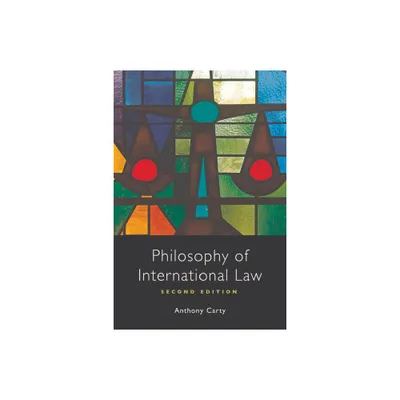Home
Democracy International Law-Making: Principles from Persian Philosophy
Loading Inventory...
Barnes and Noble
Democracy International Law-Making: Principles from Persian Philosophy
Current price: $180.00


Barnes and Noble
Democracy International Law-Making: Principles from Persian Philosophy
Current price: $180.00
Loading Inventory...
Size: Hardcover
*Product Information may vary - to confirm product availability, pricing, and additional information please contact Barnes and Noble
This book provides a critique of current international law-making and draws on a set of principles from Persian philosophers to present an alternative to influence the development of international law-making procedure.
The work conceptualizes a substantive notion of democracy in order to regulate international law-making mechanisms under a set of principles developed between the twelfth and seventeenth centuries in Persia. What the author here names ‘democratic egalitarian multilateralism’ is founded on: the idea of ‘egalitarian law’ by Suhrawardi, the account of ‘substantial motion’ by Mulla Sadra, and the ideal of ‘intercultural dialectical democracy’ developed by Rūmī. Following a discussion of the conceptual flaws of the chartered and customary sources of international law, it is argued that ‘democratic egalitarian multilateralism’ could be a source for a set of principles to regulate the procedures through which international treaties are made as well as a criterion for customary international law-ascertainment.
Presenting an alternative, drawn from a less dominant culture, to the established ideas of international law-making the book will be essential reading for researchers and academics working in public international law, history of law, legal theory, comparative legal theory, Islamic law, and history.
The work conceptualizes a substantive notion of democracy in order to regulate international law-making mechanisms under a set of principles developed between the twelfth and seventeenth centuries in Persia. What the author here names ‘democratic egalitarian multilateralism’ is founded on: the idea of ‘egalitarian law’ by Suhrawardi, the account of ‘substantial motion’ by Mulla Sadra, and the ideal of ‘intercultural dialectical democracy’ developed by Rūmī. Following a discussion of the conceptual flaws of the chartered and customary sources of international law, it is argued that ‘democratic egalitarian multilateralism’ could be a source for a set of principles to regulate the procedures through which international treaties are made as well as a criterion for customary international law-ascertainment.
Presenting an alternative, drawn from a less dominant culture, to the established ideas of international law-making the book will be essential reading for researchers and academics working in public international law, history of law, legal theory, comparative legal theory, Islamic law, and history.


















